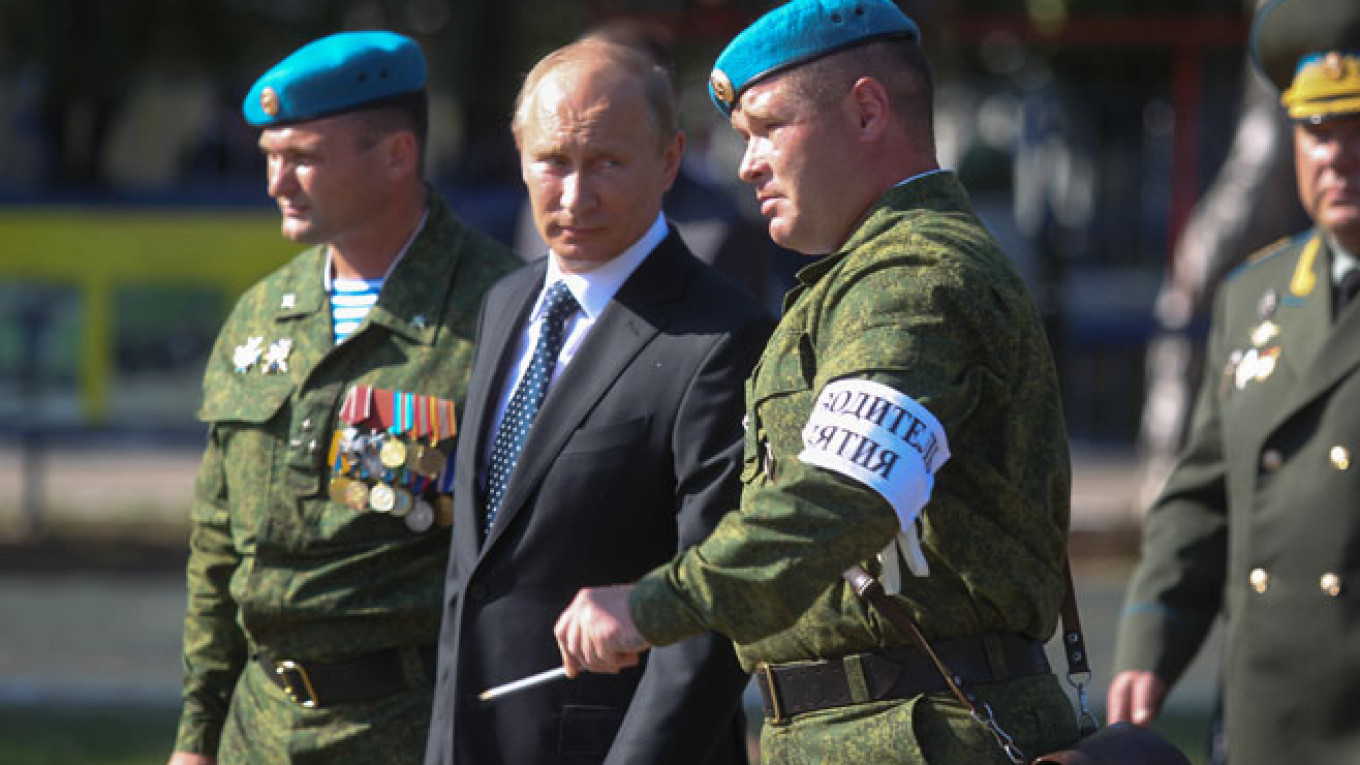A Kremlin whose instincts are secrecy and misdirection, and which often relies on leaks and innuendo to indicate policy and direct its officials, is the best friend of the Kremlinologist and the conspiracy theorist (arguably two sides of the same tarnished coin). I am, alas, one of this degenerate band of wonks and thus know of what I speak.
It is often easy to make far too much of an argument based on far too little data and in the process do little but demonstrate our own biases and assumptions: The Kremlin becomes nothing more than our own Rorschach inkblot test. However, just as the occasional find keeps the prospector at his back-breaking labor sifting pebbles in the stream, regardless of the ratio of fool's gold to the real stuff, so too the Putinologist rumor mill grinds out enough genuinely valuable insights that it is impossible to ignore it.
Sometimes, we end up joining together dots that actually ought not to be connected. Last week there was a classic case in point when, in two separate decrees, eighteen officials from the Investigative Committee, Prosecutor General's Office and the Interior Ministry were dismissed from their post.
There were claims that this was a "secretive" move — although it's hard to see how decrees posted on the presidential website can count as especially covert. Then these individuals were described as "top officials" even though most were middle-ranking figures and regional deputies: Not insignificant, by all means, but hardly movers and shakers.
The rumor mill cranked and it cranked with imaginative vigor. These officials had opposed Moscow's policy towards Ukraine and were being purged for their disloyalty. It was because of a drug scandal, or a failure to deal with terrorism and separatism. This was about Putin shoring up his control of the security apparatus. Most fancifully, the officials had mooted a coup against Putin.
The truth appears far more prosaic. These decrees typically consolidate batches of promotions and dismissals and the thought that Putin cares about who is the head of logistics for the Siberian district of the Interior Troops or deputy chief of the Investigative Committee's local office for the Southern Federal District dramatically overstates his micromanagerial tendencies.
Instead, a number of these were officers of retirement age simply leaving the service, others moving to new positions. Insofar as politics played a part — and in Russia, politics always does — it is far more likely that this reflected both local power plays and inter-agency wrangles. This does say something about the way modern Russia works, but in a much less exciting way. "Bureaucrats in uniform constantly conspire against their rivals in the provinces" is a much less dramatic takeaway than "Russian cops revolt against the Kremlin."
The trouble is, often enough the rumors and conjecture turn out to be true. The presence in Ukraine of Spetsnaz special forces operators from the GRU, military intelligence, has long been claimed and suggested. I certainly have felt that the GRU was the lead agency in Moscow's undeclared war across the border. But in the face of sustained, flat denials from the Russian government, this debate was leading nowhere. Until, that is, photographs materialized showing the memorial in Moscow for a dozen Spetsnaz, all recently killed in Ukraine.
Thus, what so many outside Russia have assumed, that the eastern Ukrainian insurgency may be a rebellion fought largely by Ukrainians but fomented, armed and perhaps even directed by Moscow, suddenly looks that much harder to deny.
Policy misdeeds, from Guantanamo to Saddam Hussein's mythical "weapons of mass destruction", have helped rationalize the arguments of those who, perhaps disillusioned by their own nations' politics, are eager to give Putin every benefit of the doubt.
But so too do revelations such as the presence of Spetsnaz in Ukraine reinforce widespread suspicions of Russia. So long as the Kremlin does routinely use deceit as an instrument of statecraft (remember those claims that the "little green men" were nothing to do with Russia?), it empowers and encourages the conspiracy theorists, and should not be surprised when its every statement and pronouncement is greeted with skepticism and scoured for hidden meanings.
Mark Galeotti is professor of global affairs at New York University.
A Message from The Moscow Times:
Dear readers,
We are facing unprecedented challenges. Russia's Prosecutor General's Office has designated The Moscow Times as an "undesirable" organization, criminalizing our work and putting our staff at risk of prosecution. This follows our earlier unjust labeling as a "foreign agent."
These actions are direct attempts to silence independent journalism in Russia. The authorities claim our work "discredits the decisions of the Russian leadership." We see things differently: we strive to provide accurate, unbiased reporting on Russia.
We, the journalists of The Moscow Times, refuse to be silenced. But to continue our work, we need your help.
Your support, no matter how small, makes a world of difference. If you can, please support us monthly starting from just $2. It's quick to set up, and every contribution makes a significant impact.
By supporting The Moscow Times, you're defending open, independent journalism in the face of repression. Thank you for standing with us.
Remind me later.


